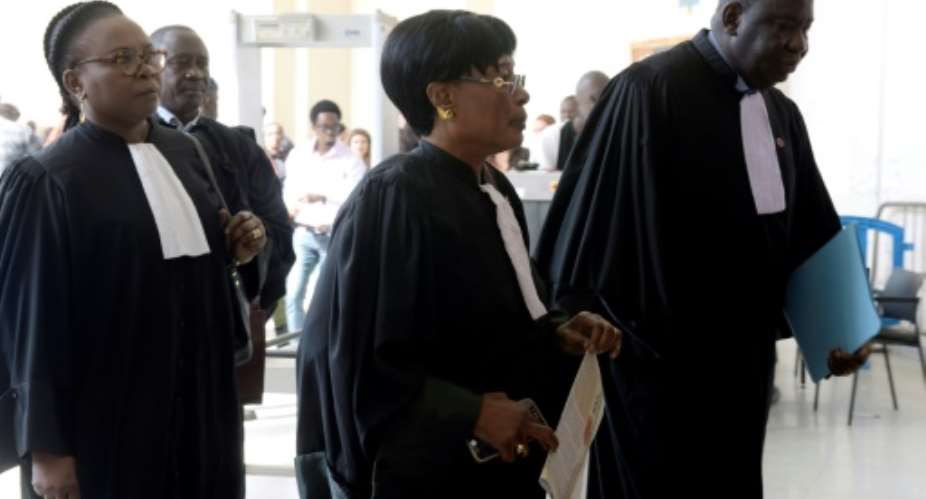Dakar (AFP) - Chadian lawyer Jacqueline Moudeina has fought for close to two decades to deliver justice for the victims of former president Hissene Habre, who terrorised his people for eight years, leaving tens of thousands dead.
Moudeina represented the victims during Habre's trial by a special court created by Senegal and the African Union.
AFP asked her if Thursday's verdict upholding Habre's life sentence for war crimes and crimes against humanity represented a turning point for African justice, and what its implications were for the increasingly unpopular International Criminal Court.
What will be the impact of the verdict?
There will be a significant impact. You cannot imagine the joy this has brought today. We have spent 17 years in search of justice, and we were stuck in a kind of tunnel. Now we are out of the tunnel and stepping into the light.
We are delivering a very strong message to dictators, to all human rights abusers. I believe everyone will pay attention. The fight against impunity has now begun in earnest, which is a turning point for Africa. Today, any African can allow himself to believe he could take on the most prolific offenders in court.
Could the special tribunal become a model for Africa?
Definitely. It would suffice for the African Union, which took on the task of setting up this jurisdiction, to do it again for other cases, but with improvements. This is a huge start. There were certainly errors that we will rectify in order to establish a very good jurisdiction.
The way we organised witnesses and the victims was very badly organised. Chad is very far away and many were not able to come here.
Is it a real alternative to the International Criminal Court (ICC)?
For sure. The ICC has a complementary role that works alongside national jurisdictions. If today we have demonstrated that Africa is capable of judging Africans, we will no longer need to turn to the ICC, because we will have shown our capacity to judge our own.
It was the Chadian victims of Habre who brought the case. At the beginning, there was just seven of us. Today, we have more than 4,385 in our camp. Two other associations have just over 3,000 victims and it is the victims who have done the work, not the West. They aren't from the West.





 Tuesday’s downpour destroys ceiling of Circuit Court '8' in Accra
Tuesday’s downpour destroys ceiling of Circuit Court '8' in Accra
 SOEs shouldn't compromise on ethical standards, accountability – Akufo-Addo
SOEs shouldn't compromise on ethical standards, accountability – Akufo-Addo
 Father of 2-year-old boy attacked by dog appeals for financial support
Father of 2-year-old boy attacked by dog appeals for financial support
 Jubilee House National Security Operative allegedly swindles businessman over sa...
Jubilee House National Security Operative allegedly swindles businessman over sa...
 Nobody can order dumsor timetable except Energy Minister – Osafo-Maafo
Nobody can order dumsor timetable except Energy Minister – Osafo-Maafo
 Mahama wishes National Chief Imam as he clock 105 years today
Mahama wishes National Chief Imam as he clock 105 years today
 J.B.Danquah Adu’s murder trial: Case adjourned to April 29
J.B.Danquah Adu’s murder trial: Case adjourned to April 29
 High Court issues arrest warrant for former MASLOC Boss
High Court issues arrest warrant for former MASLOC Boss
 Align academic curriculum with industry needs — Stanbic Bank Ghana CEO advocates
Align academic curriculum with industry needs — Stanbic Bank Ghana CEO advocates
 Election 2024: We'll declare the results and let Ghanaians know we've won - Manh...
Election 2024: We'll declare the results and let Ghanaians know we've won - Manh...
